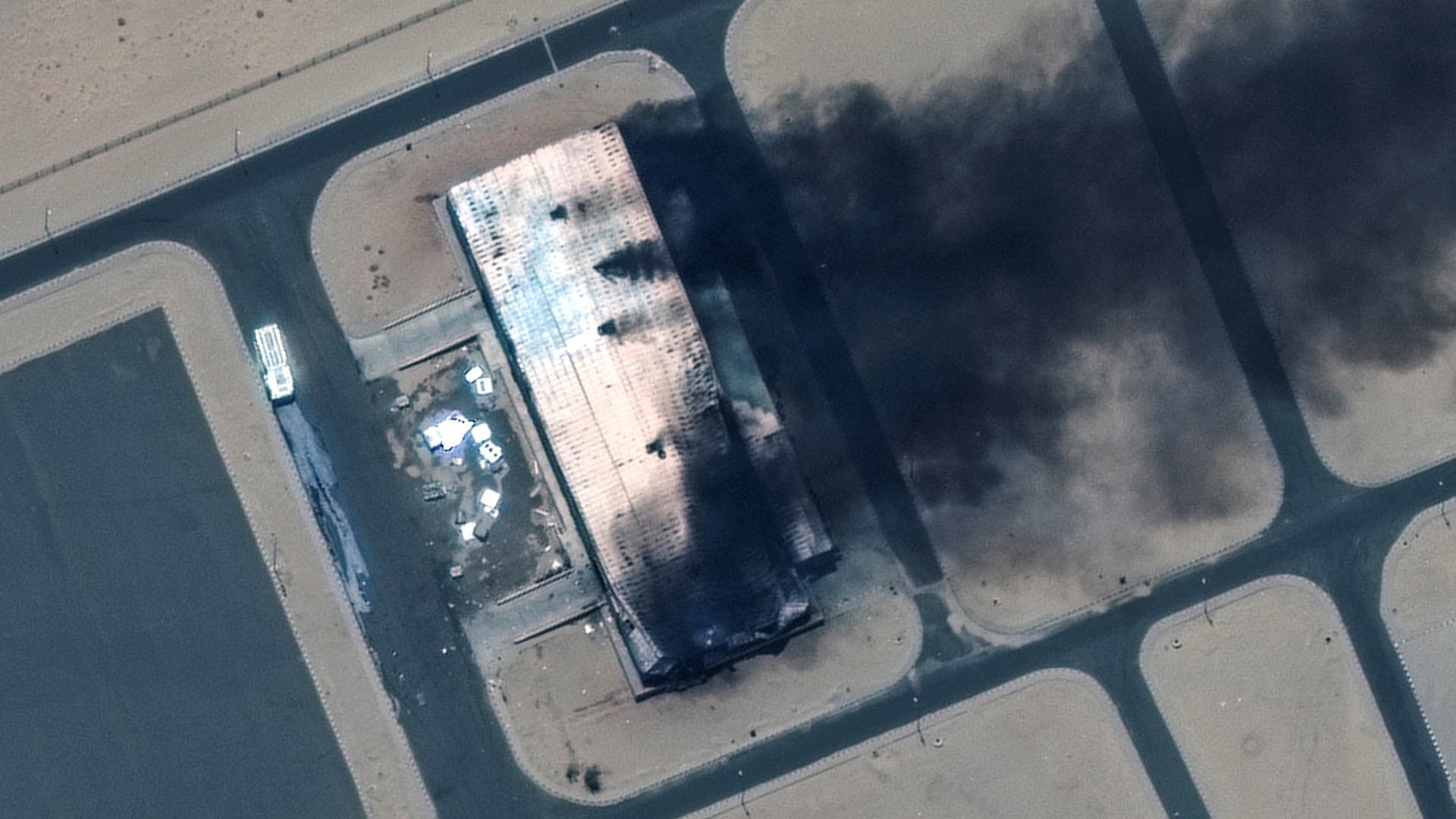'I was not prepared for this war': Khartoum residents flee the capital

With fighting ongoing in the capital, many of Khartoum's residents have attempted to flee to safer areas of the country.
Ibrahim Douma fled to Omdurman on Monday, but even that city has been facing its fair share of violence.
Douma, who works with an NGO monitoring and documenting human rights violations, told MEE he could hear the sounds of bombs, shells, and gunfire erupting close to the Mohandiseen neighbourhood southwest of Omdurman.
The area is of high strategic importance as it houses high-ranking Sudanese officers and their families. In addition, it hosts the bases of the medical, engineering, signal, and rocket launcher corps, and the Higher Military Academy.
Up to the north of the western bank of the White Nile lies the military hospital and government offices.
Douma said that he passed five checkpoints manned by army officers on his way to Omdurman. He was asked where he came from and where he was going.
"I saw tanks and miltary vehciles of the Rapid Support Forces burned on the side way... the army did not allow us in to Omdurman from the main road and we had to take a detour," he said.
'It took me few hours to absorb the shock. I could not believe it. I was not prepared for this war, and we were anxious that the internet and communications would be cut as well'
- Ibrahim Douma, Khartoum resident
The one-way White Nile, which connects north of Khartoum to the south of Omdurman, was partly closed as the military bases are the first areas that appear on the western bank of the White Nile.
Douma said that he was shocked when hearing the news on Saturday. He woke up to relentless phone calls from his family. In Khartoum he lived a few kilometres away from the armed forces headquarters and the palace.
"I drove a friend to Khartoum airport on Saturday morning and came back home around 6:30am. I drove on the armed forces bridge, and Bahri bridge which is close to the army and RSF areas, and eveything was calm," Douma said.
However, at 9:30am he woke up to face a warring city. Shops were shut down, and soon electricity and tap water supplies were cut.
"It took me few hours to absorb the shock. I could not believe it. I was not prepared for this war, and we were anxious that the internet and communications would be cut as well," he said.
"We were fasting and we hoped this would end in a few hours. We had high hopes that the army and the RSF would pave the way to transition to a civilian governemnt - but these hopes are shattered now."

